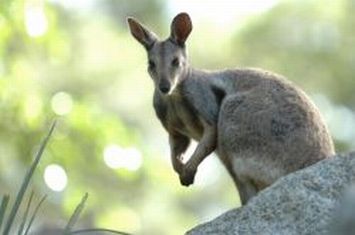
Be it global warming or deforestation or climate change, the world is getting astoundingly wiped out of its several species. True, to find a solution to this, scientists need to get to the roots of the problem. But, at the same time, they have take initiatives to conserve the existing few of the endangered species across the world.
Similarly, Australia’s black-footed rock wallaby are being pushed to the verge of extinction, with only 50 of the marsupials are feared to have been surviving in Australia.
In an effort to save these endangered marsupials, conservationists have taken up a ‘captive breeding program.’ In the mean time, six baby wallabies have been relocated to Monarto’s open-range zoo, south-east of Adelaide from the north-west of South Australia.
Interestingly, here the baby wallabies will be reared by yellow-footed rock wallabies.
Their numbers are also found to be low in Western Australia. Environment Department regional ecologist Matthew Ward says,
We have no real grasp on the actual numbers in the Northern Territory and, if the trends in South Australia are anything to go by, then establishing some animals in captivity is very important on a national scale for the black footed, also known as black flanked, wallaby.
Such initiatives may help prevent the black-footed species from going extinct in northern South Australia and elsewhere.
Image

